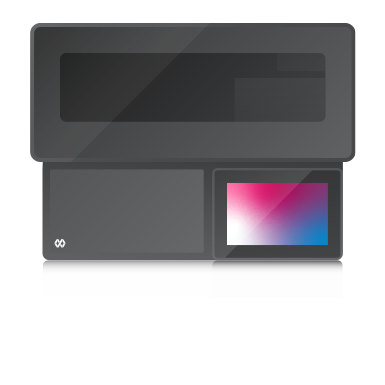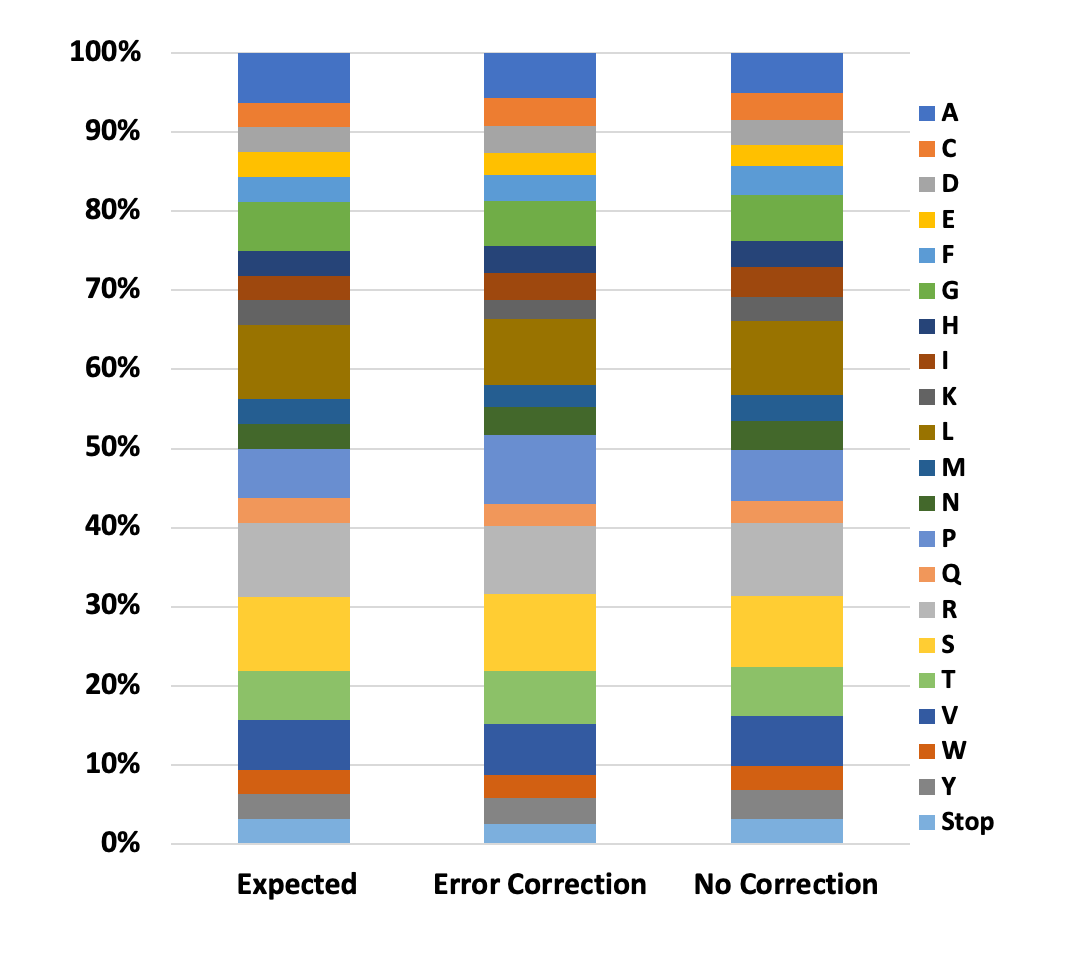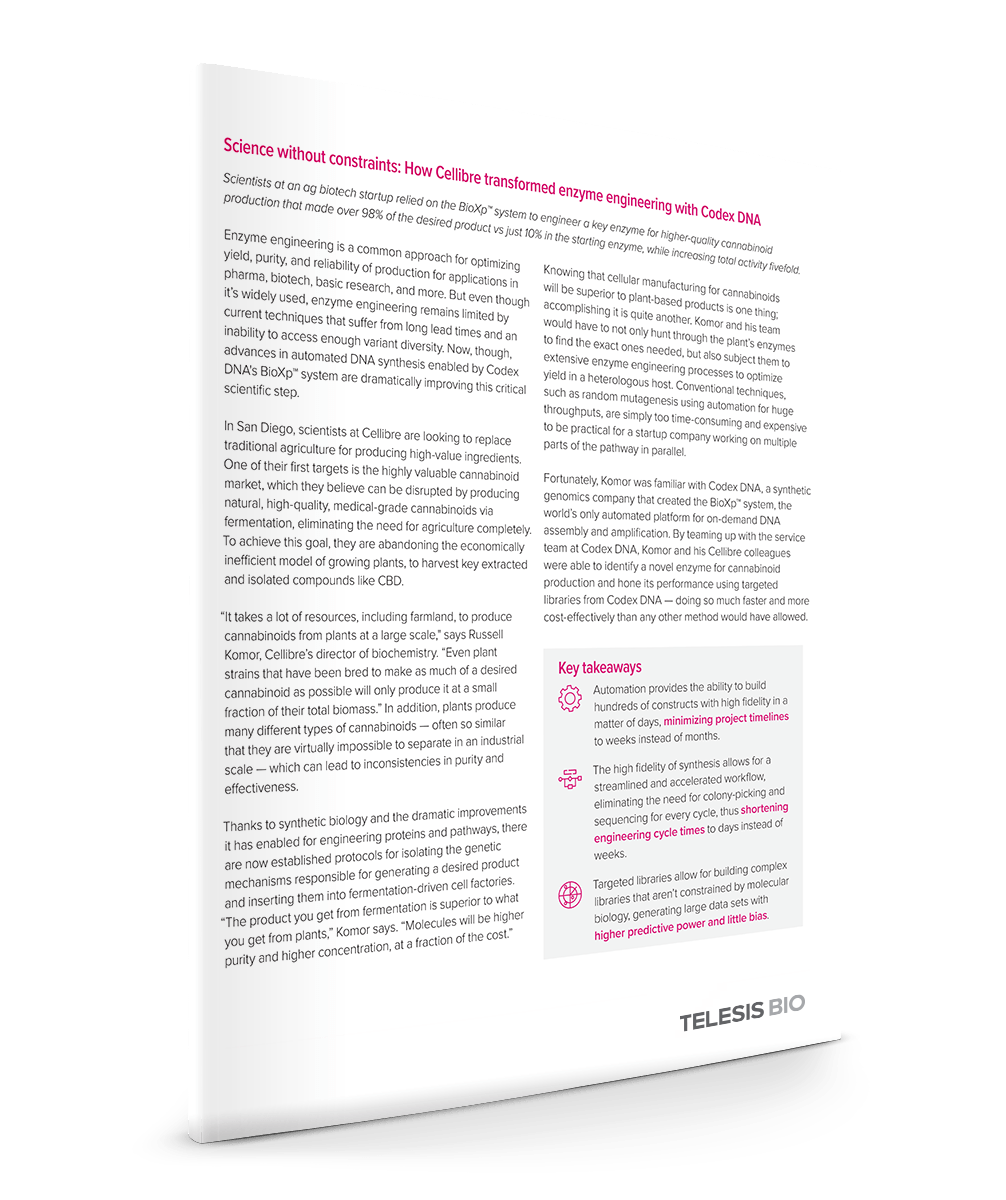Build DNA variant libraries
Synthetic DNA, simplified
BioXp® error-corrected libraries kits
BioXp error-corrected libraries kits are built using proprietary technology that leverages de novo DNA synthesis, error correction, and amplification. The final product is purified library gene fragments ready for downstream applications such as cloning, screening, or selection.
Through the power of push-button, end-to-end automation of the BioXp system, error-corrected libraries are assembled in a single instrument run of less than 16 hours – regardless of design complexities – enabling researchers to significantly reduce synthesis bottlenecks during Design-Build-Test cycles of lead optimization.
Available on both the BioXp 3250 and 9600 platforms.
Accelerate your path to discovery
Library synthesis time is independent of design complexity
Confidence in your results
DNA with the diversity you need & the fidelity you expect
Solve complex challenges
Escape from the design limitations of service providers

BioXp error-correction technology
Delivering both fidelity and diversity – from an overnight instrument run
Median Error Rate

The impact of error-correction technology on mean error rate of library builds on the BioXp
Sequence fidelity increases approximately 2-fold with error correction than without. Median error rate as measured across a pannel of representative standard libraries spanning 300-800bp, GC 30-60%.
Amino Acid Distribution

Diversity generation analysis of degenerate codons
Generation of diversity is unaffected by error-correction technology. Expected vs. observed amino acid distribution analysis from 32 unique NNK degenerate codons with and without error-correction.
Scanning libraries
BioXp scanning error-corrected libraries offer a wide variety of libraries with varied amino acid sites which can be categorized into simple-scanning (single amino acid/codon substitutions per well) and site-saturation libraries that employ NNN, NNK, and NNS degenerate codons.
Quickly identify AA sites that are sensitive to effect
Product specifications
Product format: Linear dsDNA
Median error rate: 1 in 5,000 bp
Size range: 300-800 bp*
GC content: 30-60%**
Degenerate codons: NNN, NNK, NNS
Max # degenerate codons: 3 contiguous, 6 non-contiguous per sequence
Configuration: 8, 16, 24, 32, 48, 72, or 96 synthesis reactions
Yield: >200 ng per library construct
System runtime: Up to 16.5 hrs
Classification: Research use only
* - Lengths of < 2,000 bp may be ordered, but not guaranteed
** - GC content 20% < X < 70% may be ordered, but not guaranteed
Combinatorial libraries
BioXp combinatorial error-corrected libraries offer a wide variety of libraries with varied amino acid sites which include NNN, NNK, and NNS degenerate codons as well as degenerate bases from the IUPAC code.
Identify the optimal combination for the desired effect
Product specifications
Product format: Linear dsDNA
Median error rate: 1 in 5,000 bp
Size range: 300-800 bp*
GC content: 30-60%**
Degenerate codons/bases: NNN, NNK, NNS + IUPAC nucleotides
Max # degenerate codons: 3 contiguous, 6 non-contiguous per sequence
Configuration: 8, 16, 24, 32, 48, 72, or 96 synthesis reactions
Yield: >200 ng per library construct
System runtime: Up to 16.5 hrs
Classification: Research use only
* - Lengths of < 2,000 bp may be ordered, but not guaranteed
** - GC content 20% < X < 70% may be ordered, but not guaranteed
Science without constraints: How Cellibre transformed enzyme engineering with Telesis Bio
Case study: See how scientists at an agricultural biotech startup relied on the BioXp system and the Telesis Bio service team to engineer a key enzyme for higher-quality cannabinoid production.
If your work involves protein or pathway engineering, don’t miss this case study illustrating how scientists at Cellibre significantly accelerated their efforts to engineer a cannabinoid enzyme using the BioXp system and Telesis Bio’s service team.
“The BioXp system really speeds up the engineering process and made it possible to test more designs in a shorter amount of time. Engineers usually have to compromise their design, but with Telesis Bio, we can submit any kind of design and get our DNA within a week.”
— Russell Komor, Director of biochemistry at Cellibre
In this case study, you’ll learn about:
- How the automated BioXp system streamlined their enzyme discovery process
- How the Telesis Bio service team improved their discovery performance by generating targeted libraries
- Why it was important for Cellibre scientist to test more complex variant designs, which wouldn’t have been feasible with conventional approaches to DNA synthesis in the required timeframe.
